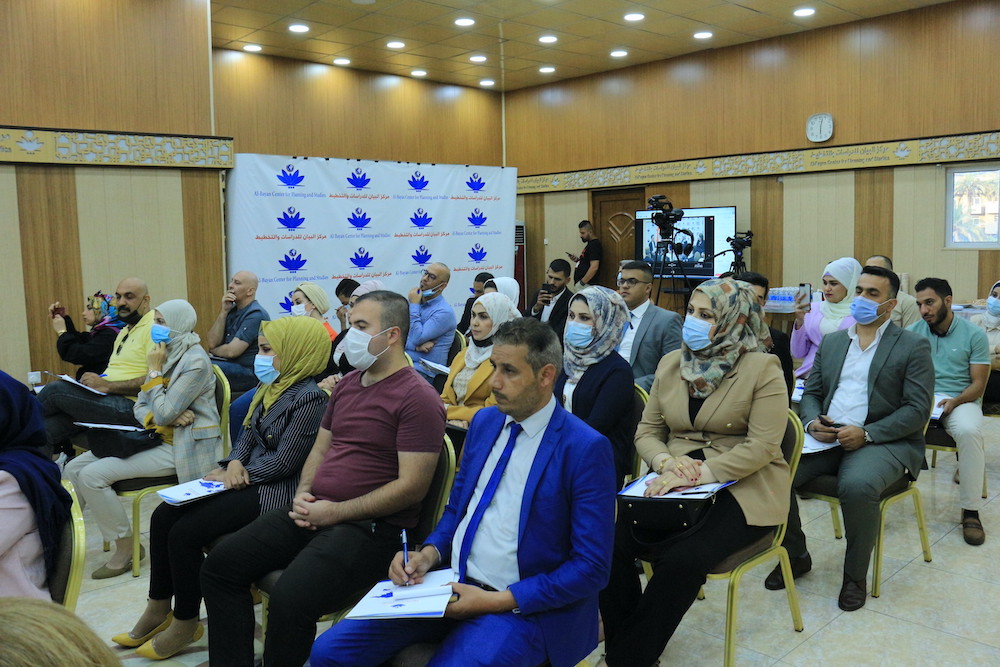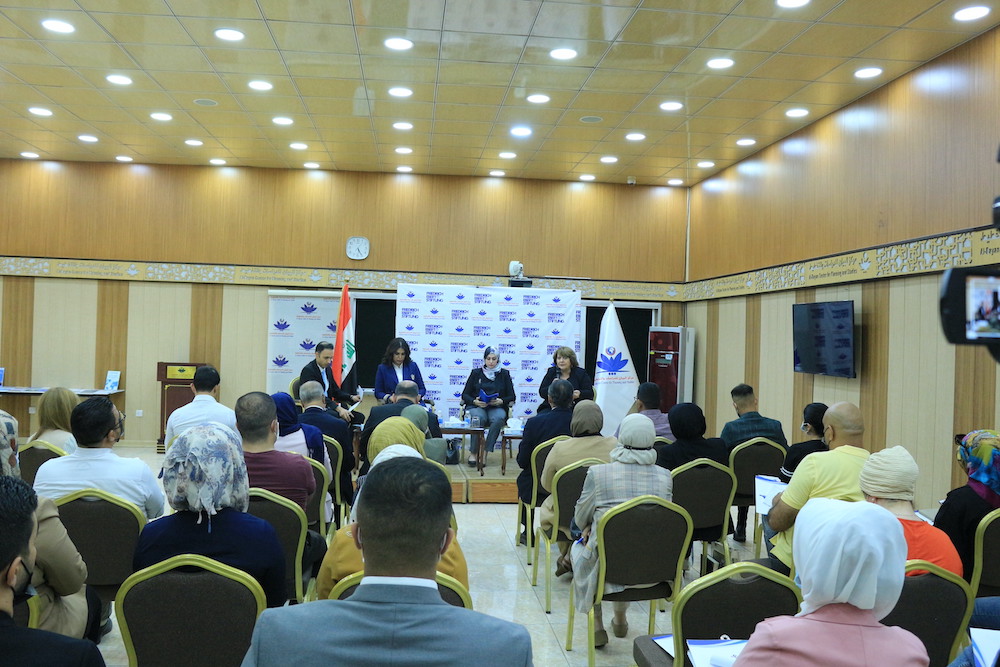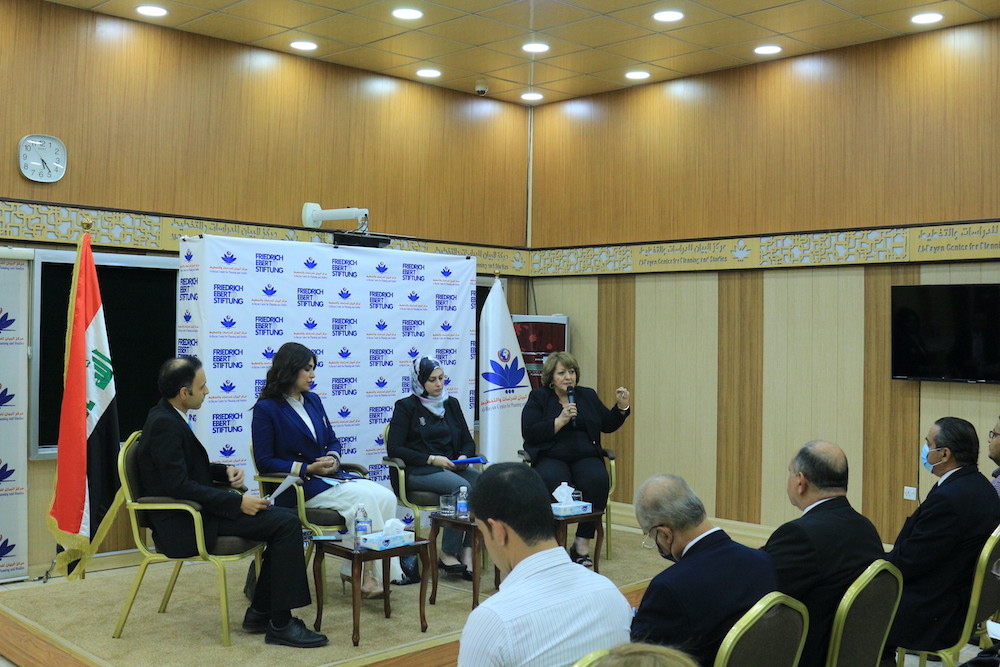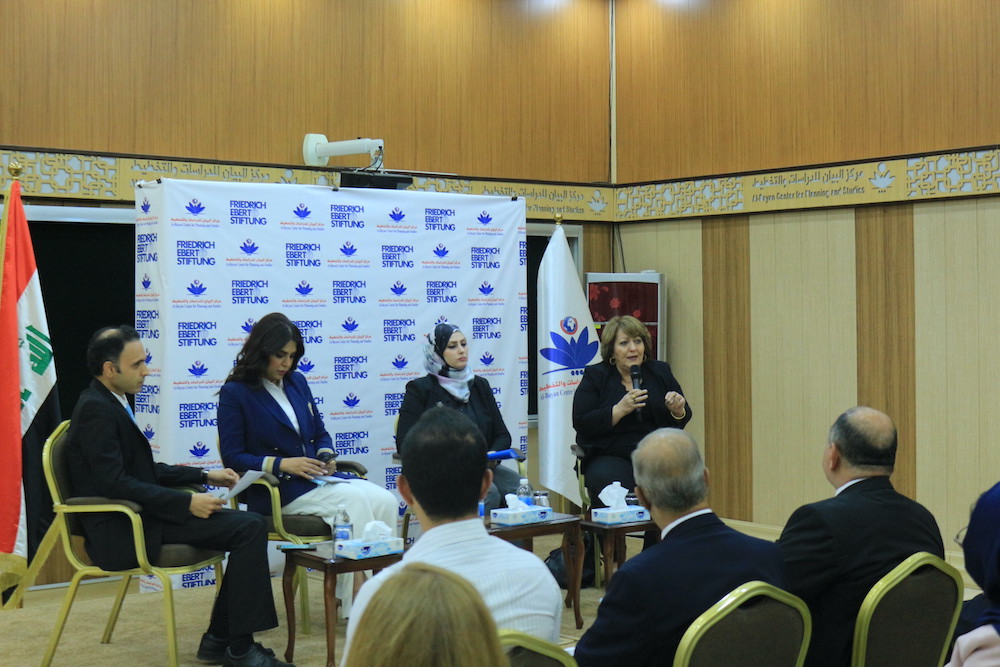In partnership with the German Friedrich Ebert institute, Al-Bayan Center for Planning and Studies held the seventh symposium in a series of seminars discussing the early elections scheduled for October this year. The symposium dealt with opportunities for women candidates from different political blocs, The seminar was entitled “Women candidates: prospects for participation in parliamentary elections. ”
The symposium hosted women candidates; Ola Al-Tamimi is a member of the political bureau of the National Awareness Movement and the President of its Women’s Council, and Ayat Mudhafar Noori, speaking on behalf of the Victory Alliance, as well as Awatef Rasheed representing the movement of “Rebuilding professionals” in Basra.
Al-Tamimi said, “Women candidates are subjected to Smear campaigns that affect their honor. This type of campaign is sensitive in an Iraqi context and has serious implications for women in general and candidates in particular”. “There is no equality of opportunity between men and women, and the clan is often employed to win voters, and in the clan’s tradition, women are not as privileged as men”, she added. “Previous parliamentary courses have produced women who do not meet the aspirations and expectations of Iraqi women, but whose existence has filled only a political free space.”
Ola Al-Tamimi stressed that the country in general and women, in particular, needed to provide laws that improved the private sector and investment opportunities because they would be reflected in women through employment.
Concerning the political orientation of women candidates, Noori stated that “the political approach of the political party is an important factor in attracting and encouraging women candidates from one party to another. In the “Victory” program, we have focused on promoting women’s rights and providing protection for women from exploitation or harassment both in the work and study environment, many women lose their roles because of this exploitation.”
“Women’s voting for women is much lower than men’s voting for women, which is about cultural causes accumulated in Iraqi society,” Noori added.
Rasheed stated that “institutions developed by successive Iraqi Governments dealing with women, such as the Women’s Empowerment Service, the Ministry of Women and the Gender Services of all Ministries, have the problem of not allocating financial resources and thus have a very limited role and may not be reflected in the reality of women.”
She continued “only 14% of the Board of Commissioners for Elections are females, and the rest of it is males, this would harm women” and she noted that “during previous courses, women deputies had no political freedom to exercise their legislative or political work and decisions were often filled out by the heads of blocks.”
The symposium featured extensive interventions on options for participation, boycotting, and the placement of Iraqi components in the upcoming elections.








